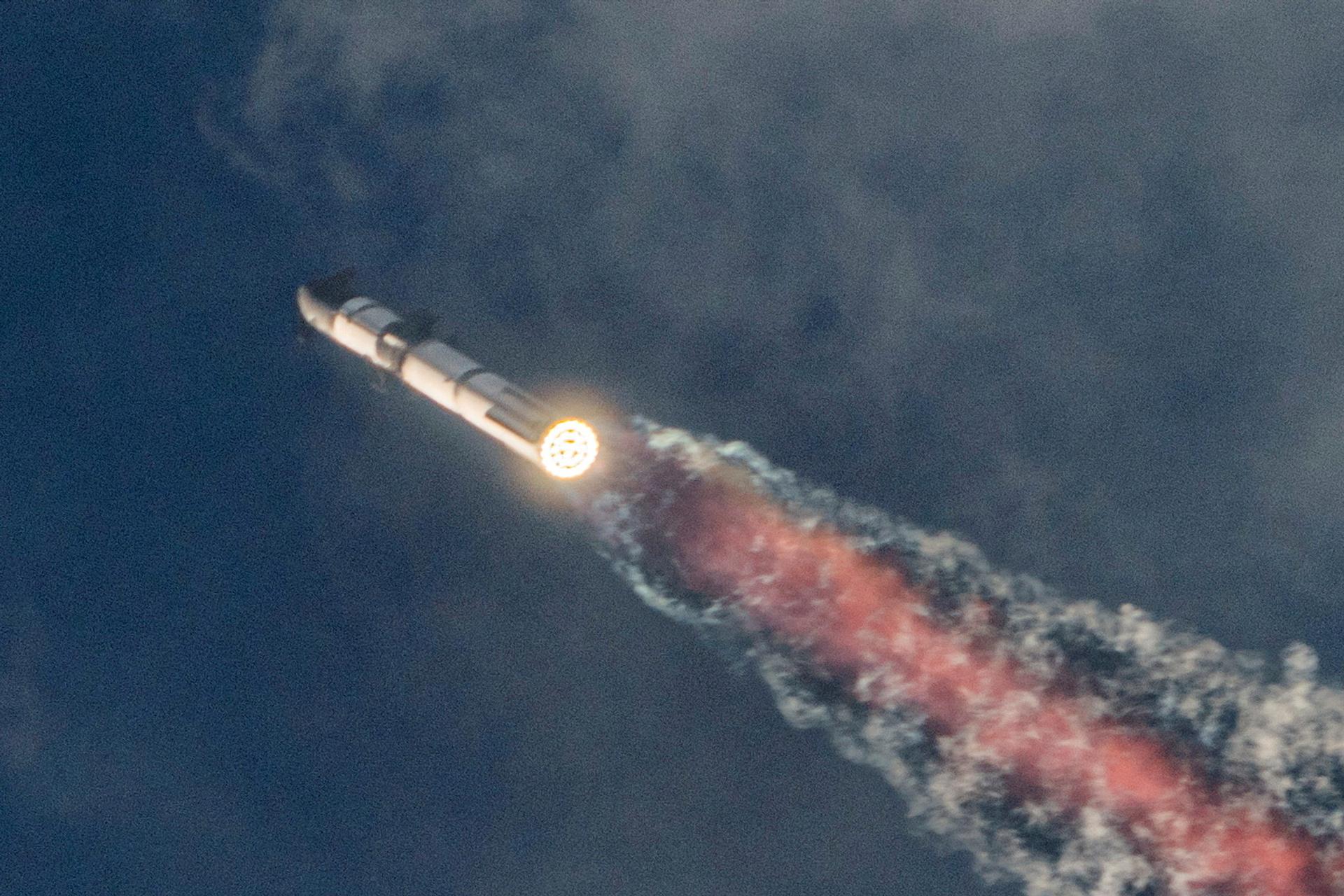The News
SpaceX’s much-hyped fourth test of its Starship megarocket ended in success on Thursday.
The Starship successfully entered orbit and then re-entered Earth’s atmosphere, and eventually splashed down in the Indian Ocean for the first time, Space X said. The ship’s Super Heavy booster system also spashed down successfully.
Elon Musk’s rocket company first tried to launch Starship in 2023: The test ended in flames, prompting months of federal safety investigations. Since then, Starship has flown twice and shown progress toward becoming a usable rocket each time.
SpaceX said that Thursday’s test aimed to prove “the ability to return and reuse Starship and Super Heavy,” the spacecraft’s booster, from orbit to Earth. Once it’s proven safe and reliable, NASA plans to use Starship as part of its effort to return humans to the moon.
SIGNALS
Starship designed to colonize Mars
The explicit goal of Starship is to fulfill Elon Musk’s desire to colonize Mars. The Starship is the tallest ever built, has the most engines, and is designed to be reusable — a key feature to enable back-and-forth trips between Mars and Earth. “We are mapping out a game plan to get a million people to Mars,” Musk wrote on X in February; he has said multiple times that humanity’s future depends on it. But though SpaceX leads the rocket industry and has transformed space travel, planetary scientists told Business Insider that Musk’s plans to colonize Mars within a few years were not realistic, plausible, or credible.
SpaceX’s ‘move fast, break things’ approach comes with risks
SpaceX employees have said that Musk’s aggressive deadlines for new products have led to injuries and a cavalier approach to safety. More than 600 SpaceX workers have reportedly been injured since 2014, according to Reuters, with some employees reporting that safety procedures can fall by the wayside. Beyond the workplace, critics also argue that SpaceX’s launches could damage the ozone layer and the ocean, especially as the company aims to ramp up the frequency of launches. The company has also been sued by environmental groups claiming the rocket tests are damaging to protected wildlife close to the Texas launch site, although recent federal inspections have not found evidence to support that claim.
Elon Musk’s rival Jeff Bezos has a big rocket of his own
Elon Musk is not the only high-profile billionaire with space dreams. Jeff Bezos’s Blue Origin is also making strides, and Bezos said it’s future is the main reason why he resigned as CEO of Amazon. Bezos has had an abiding interest in colonizing space since high school, CNBC noted. But so far, Blue Origin has taken a more cautious approach than SpaceX, aiming to create a prototype of its large New Glenn rocket that will work on its first test, rather than adopting SpaceX’s iterative approach. “I’m very confident there is going to be a launch this year,” Blue Origin’s chief executive told The New York Times in February.

